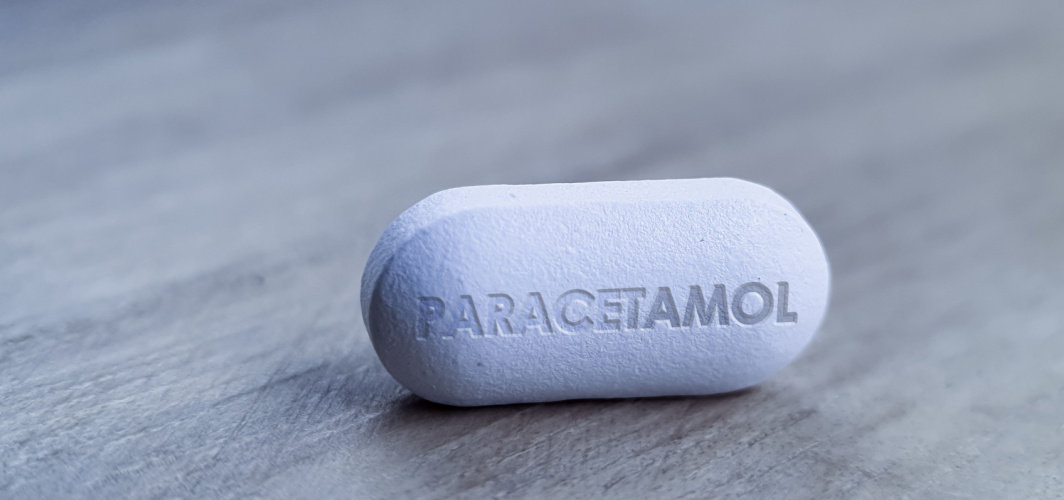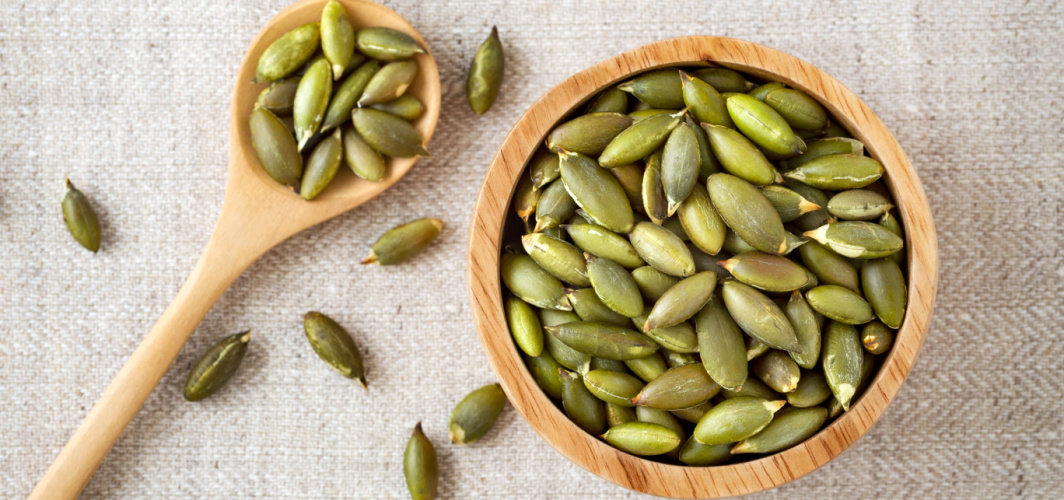- Home
- Blog
- General Health
Is Turmeric Good For Skin?
General Health
Is Turmeric Good For Skin?
By Apollo Pharmacy, Published on- 01 February 2024, Updated on -23 April 2024
Share this article
0
0 like

Turmeric, a spice celebrated for its culinary uses, has gained widespread popularity in skincare. With its rich history rooted in traditional medicine, turmeric is now a key player in contemporary skincare routines, offering a natural and holistic approach to enhancing skin health. Curcumin, the active compound of turmeric, provides it with anti-inflammatory and antioxidant properties. We aim to explore the myriad benefits that turmeric brings to skin health, providing insights into its properties and how it can be seamlessly integrated into your daily skin care routine at home.
The Science Behind Turmeric's Benefits for Skin
In this section, we will discuss the science behind the benefits of using turmeric on the skin.
1. Anti-Inflammatory Properties of Curcumin
Curcumin, the active compound in turmeric, exhibits potent anti-inflammatory properties.
- These properties play a crucial role in alleviating skin conditions associated with inflammation, such as acne and psoriasis.
- By inhibiting inflammatory pathways, curcumin helps reduce redness, swelling, and discomfort, contributing to an improved complexion.
- Research suggests that curcumin's anti-inflammatory effects may help modulate immune responses, making it a promising natural remedy for conditions like acne and psoriasis.
2. Antioxidant Properties of Curcumin
Curcumin's antioxidant properties play a crucial role in protecting the skin from free radicals and oxidative stress.
- Free radicals, generated by factors like UV exposure and pollution, contribute to premature ageing and skin damage. Curcumin scavenges these free radicals, helping to maintain skin elasticity and overall health.
- The antioxidant-rich nature of curcumin makes turmeric a valuable component in anti-aging skincare.
- By neutralising free radicals, curcumin helps prevent collagen breakdown and diminishes the appearance of wrinkles and fine lines.Regular use of turmeric-infused products or masks can contribute to a more youthful and resilient skin texture.
3. Turmeric's Potential for Improving Skin Complexion
Turmeric has been recognised for its skin-brightening properties, attributed to curcumin.
- Curcumin inhibits excess melanin production, making turmeric effective in reducing hyperpigmentation and promoting an even skin tone.
- Scientific studies support the notion that curcumin has a positive impact on skin complexion. Research indicates that curcumin inhibits the activity of enzymes involved in melanin synthesis, leading to a reduction in hyperpigmentation.
- Hence, incorporating turmeric into skincare routines can be particularly beneficial for those dealing with dark spots or uneven pigmentation, thus providing them with a balanced complexion.
Different Forms of Turmeric Available for Skincare
Turmeric can be incorporated into your daily skin care routine at home in different forms, each offering unique benefits.
1. Turmeric powder
- The antibacterial and anti-inflammatory properties of turmeric can help soothe irritated skin, reduce redness, and promote a healthy glow.
- Turmeric face masks can be easily prepared at home by mixing turmeric powder with other natural ingredients such as yoghurt or honey.
- Mixing turmeric with ingredients like coconut oil or aloe vera can enhance its absorption and moisturising effects.
Perform a patch test before using turmeric to ensure you don't have any adverse reactions.
2. Turmeric supplements for internal consumption
Dosage:
- The recommended dosage of turmeric supplements can vary based on individual health needs and the concentration of curcumin in the supplement.
- Generally, a typical dose may range from 500 to 2,000 milligrams per day. It's advisable to consult with a doctor to determine the appropriate dosage.
Drug Interaction:
- Individuals with gallbladder issues, pregnant or breastfeeding women, and those scheduled for surgery should exercise caution or consult a doctor before incorporating turmeric supplements into their routine.
- Turmeric supplements may also interact with blood thinners, antiplatelet drugs, and medications that reduce stomach acid. Individuals on these medications should seek professional advice before taking any such supplements.
- Moreover, those with underlying health conditions, such as diabetes or kidney disease, should be mindful of the potential impact of turmeric on their specific condition.
DIY Turmeric Skincare Recipes
Harness the power of turmeric with these DIY skincare recipes to promote a natural, healthy glow.
1. Turmeric face mask recipes
Here are two effective face mask recipes for different skin concerns:
A) Brightening mask for dull skin
The combination of turmeric's anti-inflammatory properties and yoghurt's lactic acid can help brighten dull skin, leaving it with a radiant glow.
Ingredients:
- 1 teaspoon turmeric powder
- 1 tablespoon plain yoghurt
- 1 teaspoon honey
Instructions:
- Mix the turmeric powder, yoghurt, and honey in a bowl until you get a smooth paste.
- Apply the mask to your face, avoiding the eye area, and leave it on for 15-20 minutes.
- Rinse off with lukewarm water.
B) Soothing mask for acne-prone skin
This mask includes the anti-inflammatory properties of turmeric with the detoxifying effects of clay, making it suitable for calming irritated and acne-prone skin.
Ingredients:
- 1 teaspoon turmeric powder
- 2 tablespoons clay (such as kaolin or bentonite)
- 1 tablespoon aloe vera gel
Instructions:
- Mix the turmeric powder, clay, and aloe vera gel to form a paste.
- Apply the mask to the skin and let it sit for 10-15 minutes.
- Rinse off with cool water.
2. Turmeric-infused skincare products
There are several turmeric-based face washes, moisturisers, and serums available in the market that harness the benefits of turmeric for various skin concerns.
Before purchasing turmeric-infused skincare products, look for reviews and recommendations of the product available on various beauty blogs or product review sites. Look for products with positive reviews and consider seeking advice from dermatologists to find the best options for your specific needs.
Precautions and Possible Side Effects
Turmeric, while beneficial, requires careful consideration for potential side effects.
1. Allergic Reactions to Turmeric
While turmeric is a natural spice, some people can be allergic to it. Before incorporating turmeric into your daily skin care routine at home, conduct a patch test. Apply a small amount of turmeric paste on a small area of your skin to check for any adverse reactions. Be vigilant for symptoms of an allergic reaction, such as:
- Redness
- Itching
- Swelling
If any adverse reactions occur, discontinue use immediately and seek medical advice.
2. Staining Concerns
Staining concerns are common, but precautions can minimise their impact:
- Stain on the Skin: Be cautious during application to prevent skin staining. If staining occurs, rinse the affected area with cold water immediately. Use lemon juice or a mixture of baking soda and water to lighten skin stains.
- Stain on Clothes: Wear old clothes or use protective garments during turmeric application. Promptly rinse turmeric stains on fabrics under cold water. Avoid hot water, as it may set the stain. Consider using lemon juice or a mixture of baking soda and water to lighten fabric stains.
Other Natural Ingredients to Combine with Turmeric
In this section, we will delve into two natural ingredients which can be combined with turmeric for a healthy skin.
1. Honey for Moisturising and Antibacterial Benefits
Honey is renowned for its moisturising properties and natural humectant abilities, which help retain skin moisture. Additionally, both turmeric and honey exhibit antibacterial properties, making this combination effective for promoting a healthy and blemish-free complexion.
This mask can be especially beneficial for individuals with dry or sensitive skin, providing a nourishing and protective layer.
Recipe:
- Combine 1 tablespoon of turmeric with 1 tablespoon of raw honey.
- Mix well and apply the mixture to your face, leaving it on for 15-20 minutes.
- Rinse off with lukewarm water.
2. Yoghurt for Soothing and Brightening Effects
Yoghurt, when paired with turmeric, offers a harmonious combination that benefits the skin in multiple ways. Yoghurt provides a soothing effect, making it ideal for calming irritated skin. The lactic acid in yoghurt also contributes to gentle exfoliation, promoting a smoother complexion.
When combined with turmeric, this mixture becomes a potent solution for achieving a radiant and even skin tone. This combination is suitable for various skin types, including those with dull or uneven skin.
Recipe:
- Mix 1 tablespoon of turmeric with 2 tablespoons of plain yoghurt.
- Apply the mixture to your face, gently massaging in circular motions for exfoliation.
- Leave it on for 10-15 minutes before rinsing off.
Conclusion
Integrating turmeric into your daily skin care routine at home can bring about transformative results. As you navigate this journey on how to take care of skin, it's crucial to consider consulting with a dermatologist, tailoring your turmeric usage to your specific health conditions for a well-informed and personalised approach to skincare.
Services
General Health
Frequently asked questions
A1. Turmeric is generally safe for most skin types, however, individuals with sensitive skin may experience irritation. It is advisable to conduct a patch test before widespread use and consider diluting turmeric with other soothing ingredients like yogurt or honey.
A2. Yes, turmeric possesses anti-inflammatory and antibacterial properties that can benefit acne-prone skin. Creating a turmeric face mask with aloe vera gel and tea tree oil may help soothe inflammation and promote clearer skin.
A3. While turmeric is known for its vibrant colour, staining is rare when used in moderation. To minimise the risk of staining, mix turmeric with other ingredients such as yoghurt or honey. Additionally, avoid leaving turmeric masks on the skin for an extended period.
A4. Yes, turmeric's anti-inflammatory and antioxidant properties may aid in reducing dark spots and pigmentation. Incorporating a turmeric face mask with yoghurt and honey into your daily skin care routine at home can contribute to a brighter complexion over time.
A5. Turmeric supplements can potentially benefit skin health due to their anti-inflammatory properties. However, individual responses may vary. It is recommended to consult with a dermatologist to determine the appropriate dosage and to consider potential interactions with medications.
Leave Comment
Services
Recommended for you

General Health
Dolo 650: Potential Interactions And Precautions
Discover essential information about Dolo 650, including its potential interactions and precautions, for safe and effective usage.

General Health
Top 10 Chemical Free Face Washes in India
As the demand for natural skincare grows, chemical-free face washes have become a popular choice for those seeking gentle, non-toxic solutions. Ideal for sensitive skin, these products avoid harsh ingredients like sulphates, parabens, and artificial fragrances. Instead, they use plant-based extracts and nourishing elements to cleanse and protect the skin's natural barrier. This article highlights the Top 10 Chemical Free Face Washes in India, each chosen for its skin-friendly, effective formula that promotes healthy, radiant skin naturally.

General Health
7 Health Benefits Of Pumpkin Seeds
Discover the numerous health benefits of pumpkin seeds, from improved heart health to enhanced immunity.
Subscribe
Sign up for our free Health Library Daily Newsletter
Get doctor-approved health tips, news, and more.

